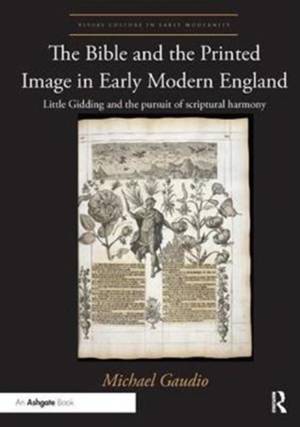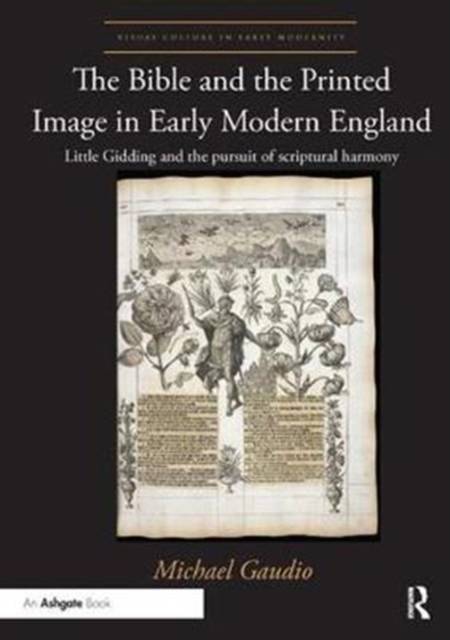
- Retrait gratuit dans votre magasin Club
- 7.000.000 titres dans notre catalogue
- Payer en toute sécurité
- Toujours un magasin près de chez vous
- Retrait gratuit dans votre magasin Club
- 7.000.0000 titres dans notre catalogue
- Payer en toute sécurité
- Toujours un magasin près de chez vous
The Bible and the Printed Image in Early Modern England
Little Gidding and the Pursuit of Scriptural Harmony
Michael Gaudio
63,95 €
+ 127 points
Description
The first book-length study of the fifteen surviving Little Gidding bible concordances, this book examines the visual culture of print in seventeenth-century England through the lens of one extraordinary family and their hand-made biblical manuscripts. The volumes were created by the women of the Ferrar-Collet family of Little Gidding, who selected works from the family's collection of Catholic religious prints, and then cut and pasted prints and print fragments, along with verses excised from the bible, and composed them in artful arrangements on the page in the manner of collage. Gaudio shows that by cutting, recombining, and pasting multi-scaled print fragments, the Ferrar-Collet family put into practice a remarkably flexible pictorial language. The Little Gidding concordances provide an occasion to explore how the manipulation of print could be a means of thinking through some of the most pressing religious and political questions of the pre-civil war period: the coherence of printed scripture, the nature of sovereignty, the relevance of the Mosaic law, and the protestant reform of images. By foregrounding the Ferrar-Collets' engagement with the print fragment, this book extends the scope of early modern print history beyond the printmaker's studio and expands our understanding of the ways an early modern Protestant community could productively engage with the religious image. Contrary to the long-held view that the English Reformation led to a decline in the importance of the religious image, this study demonstrates the ongoing vitality of religious prints in early modern England as instruments for thinking.
Spécifications
Parties prenantes
- Auteur(s) :
- Editeur:
Contenu
- Nombre de pages :
- 220
- Langue:
- Anglais
- Collection :
Caractéristiques
- EAN:
- 9781138353299
- Date de parution :
- 21-11-18
- Format:
- Livre broché
- Format numérique:
- Trade paperback (VS)
- Dimensions :
- 170 mm x 244 mm
- Poids :
- 358 g

Les avis
Nous publions uniquement les avis qui respectent les conditions requises. Consultez nos conditions pour les avis.






